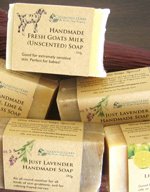For those who don't know, an ang pow is a red palm-sized envelopes stuffed with a token amount of money that's given out during Chinese New Year, from the elders to the young'uns. The usual indication of who's "elder" is quite simply who's married, though at a certain age, if you haven't quite gotten hitched by circumstance or by choice, the flow of red packets your way generally trickles to a slow death.
I love ang pows. The usual rule in Malaysia is the closer your relative, the bigger the amount. Congratulations to those from very large extended families!
A few interesting things about ang pows...
- The amounts inside should be even numbers, as odd numbers are associated with funerals... which makes me wonder why I used to get a lot of ang pows with $5 notes in them. With inflation they've graduated to $10, so I guess that really isn't an issue anymore.
- The amount must never be a 4. The Chinese word for "4" is very similar to the Chinese word for "death" and being the wonderfully superstitious people we are, we shun that number. If you ever walk into a building and notice that the fourth floor is labeled "3A" instead of "4", you can rest assured that the developer is Chinese.
- Ang pows are similarly practised in other Asian countries like Vietnam (lì xì), Thailand (tae ea), Myanmar (an-pao), South Korea (sae bae ton), and the Philippines. Japan also has a similar tradition, but their monetary gifts are called otoshidama, and are ensconced in white envelopes instead, with the name of the receiver written on it. During weddings, a similar practice is observed, but folded and with an elaborate bow on it, in keeping with the wonderfully aesthetic nature of the Japanese.
Love,
Amber & Michelle





No comments:
Post a Comment